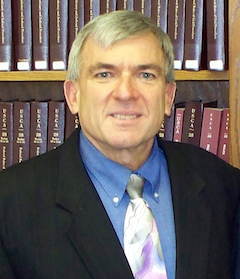The topic of this article may not meet Wikipedia's notability guideline for biographies .(November 2021) |
Roger Baron | |
|---|---|
 | |
| Alma mater | University of Missouri School of Law |
| Occupations | Professor Attorney |
| Website | erisawithprofessorbaron.com/ |
Roger Baron is an American attorney, ERISA Subrogation and Reimbursement Expert, and law professor at University of South Dakota School of Law from 1990 to 2015.